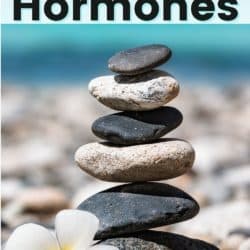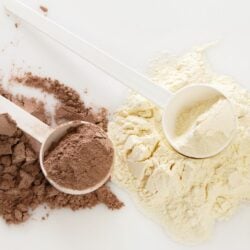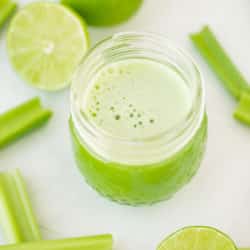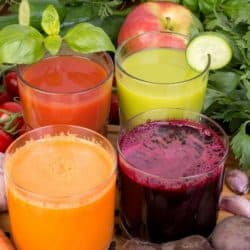Best Supplements for Hormone Balance (Males and Females)
In this blog post, we’ll discuss the best supplements for hormone balance in both males and females. So whether you’re struggling with PMS or low testosterone, read on for some helpful tips!

We all know how important hormones are for our bodies – they play a big role in everything from our moods to our metabolism. But sometimes, our hormones can get out of balance, which can lead to some serious health issues. Luckily, there are a few supplements that can help us keep our hormones in check.
Basic Overall Supplements for Hormone Balance (Male and Female)
1. Magnesium
If you tend to suffer from headaches, anxiety, fatigue, and poor appetite, then a lack of magnesium in your diet could be to blame. Magnesium is a great all-rounder, promoting hormonal release and regulating our body clocks which helps us sleep better.
In fact, research carried out in Iran showed that magnesium supplements helped a group of elderly people sleep for longer and more deeply. Their levels of stress hormones dropped too.
A magnesium supplement may also be useful if you suffer from pre-menstrual syndrome (PMS).
This study published in the Journal of Caring Sciences in 2012 involved women keeping a menstrual diary and found that magnesium made a big improvement in common PMS symptoms like anxiety, depression, and water retention.
Magnesium can help balance the mood of men and women alike, with a deficiency in this nutrient linked to depression. Experts believe that this benefit comes from the fact that magnesium supports the neurotransmitters in our brain that are related to moods.
Magnesium is good for our physical health, too, as it maintains the strength of our bones by helping the body metabolize calcium and vitamin D. Furthermore, research suggests that magnesium supplements can help prevent osteoporosis in postmenopausal women.
This supplement is also on my list of the best supplements for menopause joint pain.
Recommended magnesium supplement:
2. B vitamins
B-vitamins are essential in helping us feel healthy, balanced, and energetic. They also help produce and metabolize hormones and neurotransmitters. Because they are water-soluble, our bodies do not store them and we need to get them either from our diets or through supplementation.
B-complex supplements usually contain around eight B vitamins in each pill. Each of these B vitamins brings its own unique benefits in achieving hormonal balance.
These include:
- Thiamine (B1): needed to produce energy and to help metabolize glucose.
- Riboflavin (B2): important for detoxification, the metabolism of fatty acids, and the maintenance of thyroid function.
- Niacin (B3): plays an important part in making and repairing DNA, and also acts as an antioxidant.
- Pantothenic acid (B5): helps metabolize nutrients, produces adrenal hormones, and is essential for managing stress.
- Pyridoxine (B6): may reduce PMS symptoms and supports the creation of neurotransmitters.
- Biotin (B7): needed for the metabolism of carbohydrates and fats.
- Folate (B9): supports the healthy growth of cells and may support ovulation.
- Cobalamin (B12): involved in detoxification and helps regulate the body’s levels of the amino acid homocysteine. Too much homocysteine has been linked with hormonal imbalance.
Recommended vitamin B supplement:
3. Omega-3 fatty acids
Omega-3 fatty acids are sometimes called “essential fatty acids” because we need them from our diet for our health. Our bodies can’t make these healthy fats. Among other things, they play an important role in the production of hormones.
Omega-3 fatty acids are counterbalanced by omega-6 fatty acids. Because the Standard American Diet is so high in seed oils such as canola, corn, and soy, most people tend to consume a ratio far closer to 1:20!
Fortunately, we can reverse this massive imbalance by taking good fish oil supplements, rich in EPA and DHA – the two main types of omega-3 fatty acids.
It can be hard to get enough omega-3s even if you’re eating a healthy diet. So, a supplement is often needed.
Recommended omega-3 supplement:
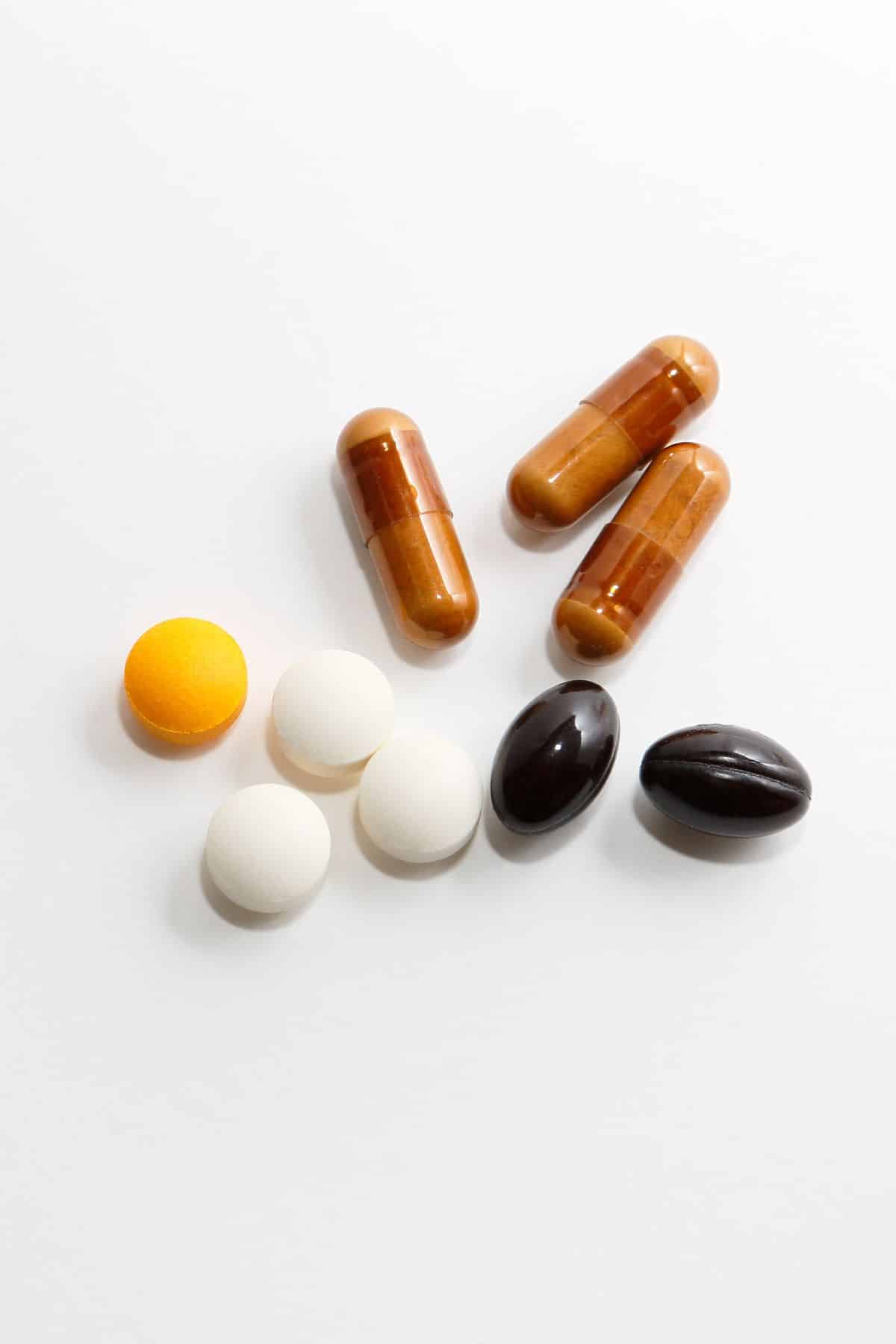
4. Vitamin D
Vitamin D is a vitamin AND a hormone. Some experts suggest it should be described as a “prohormone” because it is a substance that the body converts into a hormone or a chemical that we use to regulate our bodies’ processes.
It is produced when ultraviolet rays from the sun hit our skin and is also found in some foods, especially fortified cereals. A fat-soluble vitamin, it is stored in the fat cells of our bodies to be used when needed.
Vitamin D assists with calcium absorption, keeping our bones healthy. It can also help control hyperparathyroidism, a condition where one or more of the parathyroid glands releases too much parathyroid hormone (PTH).
A deficiency of vitamin D has been linked to menstrual disorders whereas women with adequate vitamin D levels are believed to be at a lower risk for breast cancer.
There is also evidence that Vitamin D can raise testosterone levels in men.
Vitamin D supplements are usually available as vitamin D2 or vitamin D3. The D3 form of the vitamin comes from fatty animal-sourced foods like egg yolk and fish oil. It is also the type your body produces from sunlight. Vitamin D2 comes from plant sources.
Some experts say that their nutritional value is the same, although there has been research that suggests that vitamin D2 is less stable. However, this hasn’t yet been shown to have an impact on human health.
Recommended vitamin D supplements:
5. Vitamin K2
This vitamin works well with vitamin D to balance the body’s calcium levels, boost the immune system, and maintain hormonal health.
Studies have shown that supplementation of vitamin K2, vitamin D, and calcium can be helpful in managing Polycystic Ovary Syndrome (PCOS), a common condition linked to hormonal imbalances. See my related list of the best 10 Best Supplements for Annoying PCOS Symptoms.
Men can benefit from supplementation with vitamin K2, too, and a Japanese study found that rats who were low in vitamin K were also low in testosterone. Five weeks of daily dosing with vitamin K2 saw a 70% increase in their testosterone levels!
Recommended vitamin K2 supplement:
6. Probiotics
The bacteria in your gut play an important role in the production of hormones and the ways they are broken down and removed from your blood.
If these processes don’t run smoothly, the result can be hormonal imbalances. For example, the amount of estrogen in the body could become too high. This can lead to conditions like PCOS (Polycystic Ovarian Syndrome) and endometriosis.
Probiotics are live microorganisms that can help restore the natural balance of bacteria in your gut. As well as keeping your hormones in check, a healthy gut may even help people with low thyroid function – a common problem for women.
Even if you’re on a vegan or dairy-free diet, you can still take probiotics. See my guide on dairy-free probiotics.
Recommended probiotic supplement:
Hormone Balancing Supplements for Premenopausal and Perimenopausal Women
Women who are in their late 30s often enter the stage known as perimenopause (see my list of the best natural ways to address perimenopause bloating). The changes in hormones during this phase of life can affect everything from the endocrine system, sex hormones, hormone production, and energy levels.
You may also want to check out my article on the best vitamins for gums and teeth.
1. Maca
Maca has long been revered by the people of Peru as both a food and a medicine. It comes from the root of a plant native to the Andes Mountains and is often referred to as Peruvian ginseng.
Related to turnips and broccoli, it is a rich source of amino acids, calcium, and iron.
There has been some research to suggest that maca can help balance the hormones and may be useful in reducing the symptoms of menopause.
A study carried out in 2008 and published in the journal Menopause found that a 3.5 gram dose of maca taken daily for 6 weeks was particularly helpful in reducing the low mood and anxiety that menopause often triggers.
A separate study in 2015 showed that maca could reduce depression symptoms in Chinese postmenopausal women.
There is also some evidence to suggest that maca could improve the low libido of both men and women, although this was quite a limited study and more research is needed.
Powdered maca comes in two forms – raw or gelatinized. With gelatinized maca, the roots are boiled and then pressurized. This means it has less starch and is easier to digest. It also comes in three different colors – red, yellow, and black. The red and black varieties tend to be more popular as they are milder in taste, with red maca being the sweetest.
Recommended maca supplement:
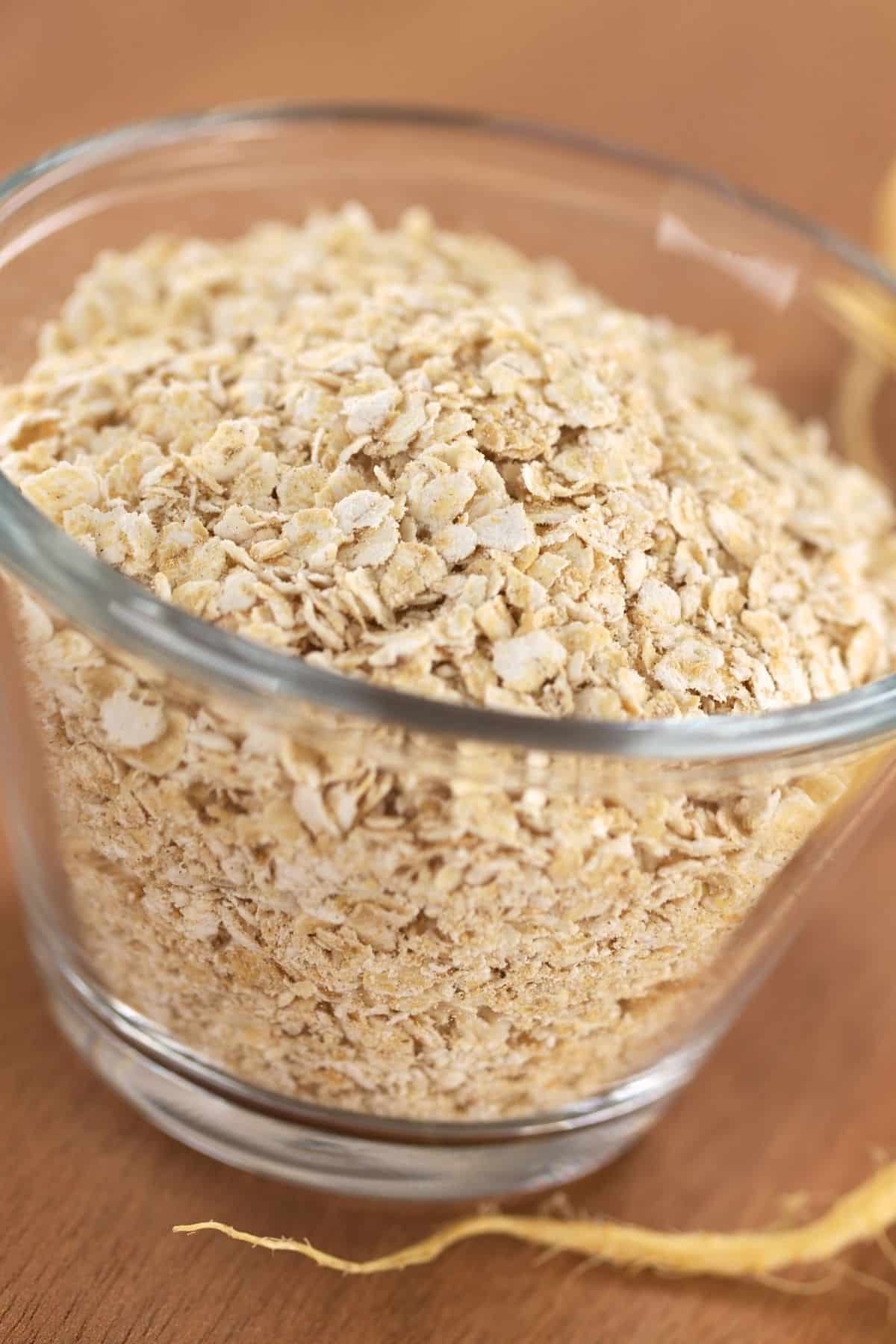
2. Black Cohosh
This North American flowering plant has long been a part of traditional Native American medicine and is now associated with several benefits for women, both pre-and post-menopausal.
One study of peri- and postmenopausal women found that black cohosh was useful in relieving psychological symptoms, while a separate study found that it improved the sleep of postmenopausal women with sleep disturbance.
Combined with other compounds like chaste berry, zinc, and ginger, it was also found to improve hot flashes – definitely culprits when it comes to poor sleep!
This study comparing black cohosh with evening primrose oil produced similarly good results, with women who took 20 mg of black cohosh daily for 8 weeks reporting flashes that were less frequent and less severe.
Black cohosh may be helpful for fertility and hormone levels, too, when taken in conjunction with the drug Clomid (clomiphene citrate) which is given for infertility.
It can be bought in pill, powdered, or liquid form.
Recommended black cohosh supplement:
3. Chaste Tree
Chaste Tree (also known as Vitex agnus-castus or Chasteberry) is a shrub from both western Asia and the Mediterranean, with the dried fruits and leaves used for medicinal purposes. It got its rather unusual name from the fact that it was historically given to men to increase their libido (a benefit that is unproven!).
Studies into its uses have been fairly limited, but there is evidence to suggest that it might be useful in reducing the symptoms of PMS.
It is believed to do this by decreasing levels of the hormone prolactin in the body, thereby rebalancing other hormones like estrogen and progesterone. In one study, an impressive 93% of women reported improvements in their symptoms after taking it.
Its effect on the symptoms of menopause has also been researched with some success. In this follow-up study, women were given a Vitex agnus castus cream and reported similarly good results.
Because this supplement may also be useful in improving the menstrual cycle it is believed that it could help with fertility. A separate study also indicated that it might be useful for women planning a family, with 26% of women becoming pregnant after consuming a supplement containing Vitex agnus-castus. This was compared to a 10% pregnancy rate in women in the same study, who were given a placebo.
Recommended Vitex supplement:
4. Kava
The south Pacific plant kava (often called kava kava) is used as a medicinal drink in Pacific cultures. It is slowly becoming more popular elsewhere due to its apparent ability to reduce anxiety – a particular problem for peri- and postmenopausal women.
Back in 1997 it was found to be an effective treatment for the condition, particularly when compared with other anxiety drugs that often lead to dependency. A later review of multiple studies reinforced this view, stating that “kava is relatively safe for short-term treatment”.
Kava may also help you sleep better.
It can be taken in capsule form, as a liquid to mix with another drink, or as a tea.
Recommended kava supplement:
5. DIM
When you digest cruciferous vegetables like cauliflower or broccoli, a compound called DIM (diindolylmethane) is created. It is becoming popular as a supplement for women because it seems to affect the body’s levels of estrogen.
Tests on animals have indicated that it can help stop breast cancer cells from developing and growing, while breast cancer patients on tamoxifen therapy who were given DIM were found to have favorable changes in estrogen metabolism.
DIM may also help stimulate the breakdown of fat and prevent new fat cells from forming, although the evidence to support this comes from studies on mice rather than humans.
Recommended DIM supplement:
You may also want to read about the benefits of a broccoli sprout supplement.
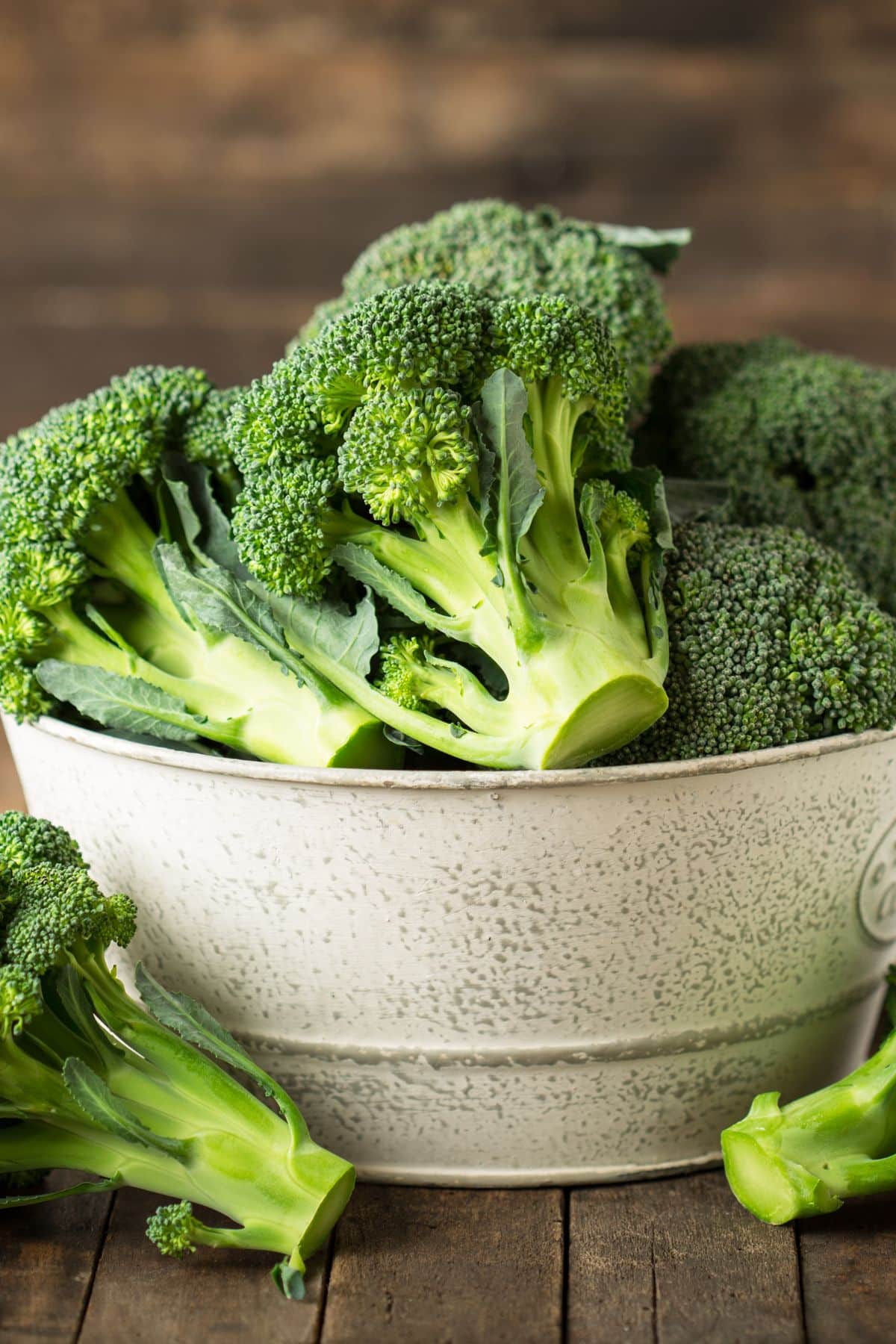
6. Milk thistle
Native to Europe, milk thistle is popular as an herb to cleanse the liver. But it can also be useful for protecting against or delaying bone loss in postmenopausal women, with studies suggesting that it may have a beneficial effect on bone formation.
It is also believed to help boost the production of breast milk in lactating mothers. This study involved 50 women and found that the active ingredient of milk thistle (silymarin) increased breast milk production by 64%.
But it’s important to note that more research is needed and that the safety of this supplement for breastfeeding mothers has not yet been established.
Recommended milk thistle supplement:
7. Vitamin E
Whilst vitamin E may not directly balance hormones, it works as an antioxidant to reduce oxidative stress (the imbalance between free radicals and antioxidants in your body). This in turn can help reduce depression, one of the common symptoms of low levels of estrogen.
Vitamin E can also reduce the severity of hot flashes.
Recommended vitamin E supplement:
Hormone Balancing Supplements for Men
It’s important to not leave out our male counterparts when talking about hormone imbalance. Men can also have problems with hormone levels due to various factors, and this can lead to problems with weight gain, mood swings, thyroid hormones, and insulin resistance.
1. DIM
Whilst cruciferous vegetables provide a good food source of DIM, you would need to eat a lot of them to come close to the concentrations offered by a DIM supplement.
These supplements offer several benefits to men, with some studies suggesting that they may help protect against gastrointestinal and prostate cancers.
DIM can also help prevent a condition called prostatic intraepithelial neoplasia (PIN) which can cause prostate enlargement and which may be a precursor to prostate cancer.
In addition to controlling the growth of fat cells and helping men maintain a healthy weight, DIM supplements may also balance male estrogen levels. Too much estrogen in men can lead to erectile dysfunction, infertility, and the possible growth of breasts.
Recommended DIM supplement:
2. Saw palmetto
A type of small palm tree with berries on its branches, saw palmetto is primarily used in men to treat the symptoms of an enlarged prostate (known as benign prostatic hyperplasia or BPH). It does this by stopping testosterone from breaking down into its byproduct, dihydrotestosterone.
Research to support this has produced mixed results but there are some studies that suggest saw palmetto can reduce how often men with the condition need to urinate at night.
Blocking the enzyme that converts testosterone to dihydrotestosterone (DHT) can have another useful effect for men, and that is that it may reduce male pattern baldness. This is because high DHT levels are believed to shorten the hair growth cycle, leaving the hair shorter and thinner.
A 2-year study of men suffering from male pattern baldness found that taking saw palmetto could increase hair growth, although the supplement wasn’t as effective as conventional hair loss medication.
A final benefit is that saw palmetto helps regulate levels of testosterone in the body. Because less of it is converted to DHT, overall testosterone levels remain higher. This can help enhance libido, improve the mood, and protect against heart disease.
Recommended saw palmetto supplement:
3. DHEA
DHEA (dehydroepiandrosterone) is a steroid hormone produced naturally by men in their younger years, contributing to the male sexual characteristics of puberty. But as men age, their levels start to drop at a rate of about 10% every 10 years.
It is available in supplementary form as tablets or creams that you apply to your skin. There is a small amount of research that indicates DHEA may be helpful for depression and also for improving the body composition of older men.
Recommended DHEA supplement:
Foods that can help balance hormones
In addition to taking the right supplements, it’s always important to eat a balanced, real food diet as well. The correct nutrition combined with sleep and stress management will all play into having balanced hormones.
But, there are some special foods that have research on their effects on hormones. Here are some of them.
1. Soy products
Soy – a member of the legume family – is a very nutrient-dense food and a complete protein. This means that it contains all nine of the essential amino acids that the body can’t make for itself and needs to obtain from food.
It can be consumed in lots of different forms, from unfermented foods like tofu and edamame to fermented products like miso and soy sauce.
Its reputation has always been somewhat controversial. While many consider it to be helpful in balancing hormones – particularly for menopausal women – there have also been (unsubstantiated) claims that it can be harmful.
But according to The Harvard T.H. Chan School of Public Health (the public health school of Harvard University), recent studies have shown that soy is either likely to provide health benefits – or only have a neutral effect on certain conditions.
There is some research to show that soy may be useful in reducing menopausal symptoms, although studies are ongoing. This benefit comes from the fact that soy is rich in isoflavones – a kind of plant estrogen that is similar to human estrogen but with more subtle effects.
In some people, however, the estrogens from soy don’t always act like human estrogen. Instead, they may actually block its action. There is some evidence that this may mean soy could be helpful in reducing the risk of breast cancer. Further studies have shown that it can reduce the risk of prostate cancer too.
2. Raw carrots, whole grains, and other fiber-rich foods
Foods that contain lots of fiber can help reduce how much cholesterol the body absorbs.
Cholesterol is needed for the production of estrogen, so a diet high in fiber can reduce the amount of estrogen in the blood.
Fiber also causes the colon to absorb less estrogen and to excrete more through feces. This helps balance estrogen levels and lowers the risk of breast cancer.
3. Spearmint
Spearmint tea can be very useful in balancing hormones in women. It can lower the levels of male hormones such as testosterone and raise the levels of the hormones that women need for ovulation.
This can be useful for women suffering from hirsutism (excess hair growth) and the uncomfortable symptoms of PCOS.
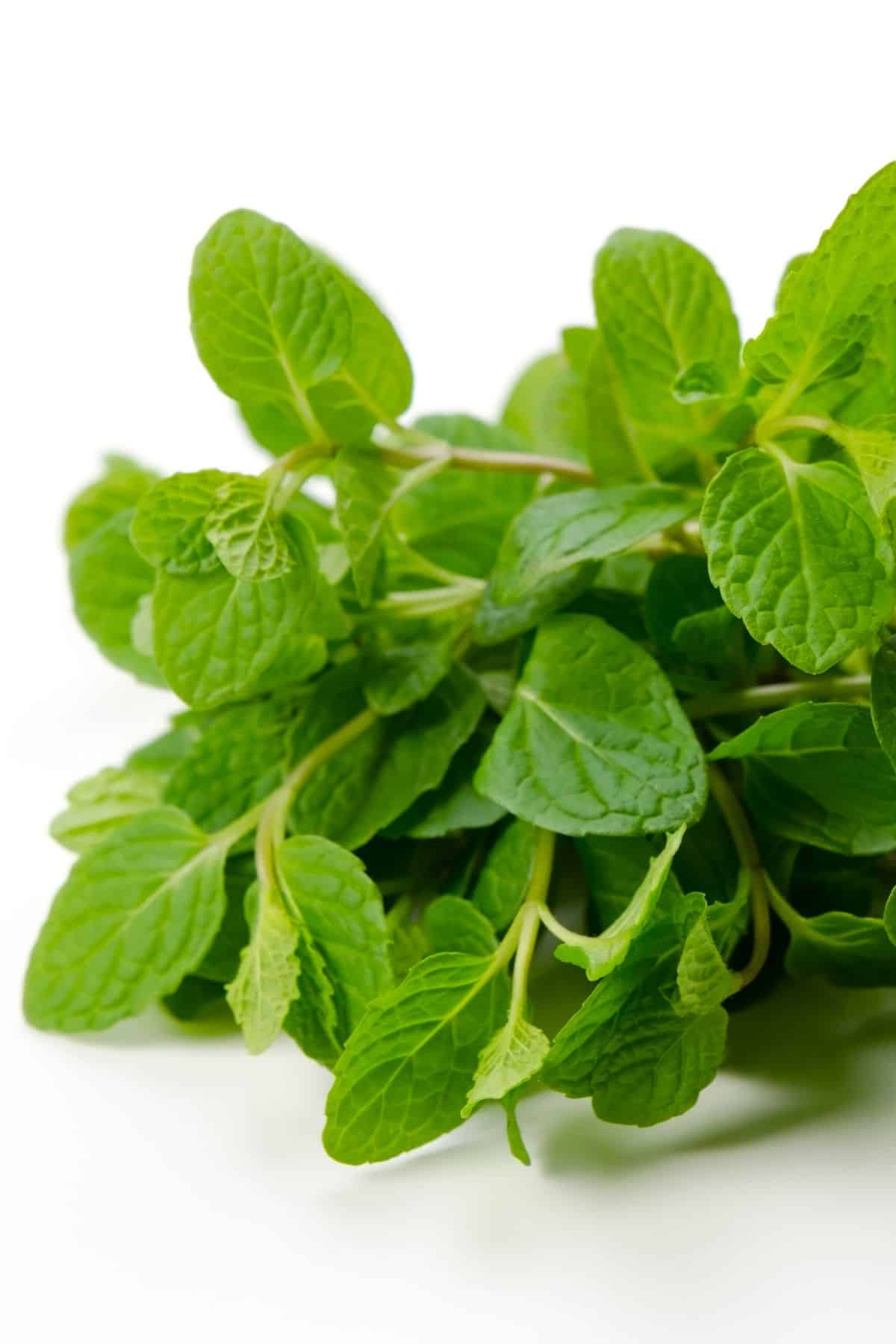
4. Flax seeds
These nutritious little seeds contain a group of phytochemicals called lignans, which bind to estrogen in the intestine and ensure that they are excreted in the feces.
They also support the production of Sex Hormone Binding Globulin (SHBG) in the liver.
SHBG binds to estrogens, balancing their levels in your body and stopping them from worsening the symptoms of estrogen dominance. Consuming flax seeds may also reduce the risk of breast cancer and other hormonally dependent cancers.
5. Cruciferous vegetables
Vegetables like cauliflower, broccoli, kale, spinach, Brussels sprouts, and cabbage all contain a compound called DIM (diindolylmethane). DIM influences the body’s estrogen levels and may be useful in stopping the development and growth of breast cancer cells.
There is also some research to suggest that it can be useful in weight control, as it seems to stimulate the breakdown of fats and block the formation of new fat cells. However, this hasn’t yet been tested in humans so studies are still ongoing.
More Resources
I have written a lot about hormones and using supplements to help with overall health. Here are some more articles you might find helpful.
- 7 Ways to Reverse Estrogen Dominance Naturally
- Best Supplements to Reduce Estrogen Dominance
- Best Vitamins for Women Over 50
- What Vitamins Should a 30 Year Old Woman Take?
- 7 Holistic Health Tips for Beginners
- Functional Medicine Doctors Near Me
Additional Articles With Supplement Recommendations
Conclusions
Hormonal imbalances can be associated with a wide range of problems in both men and women.
But the good news is that there are many supplements and even some foods that can help correct the problem. You should, of course, always check with your healthcare provider before taking any supplements. But it is good to know that you can proactively take steps to bring your hormones under control, reducing uncomfortable symptoms and significantly improving your quality of life.
Don’t forget to join my newsletter list to get exclusive clean eating recipes and tips. The newsletter is 100% free with no spam; unsubscribe anytime.
Note: this post is for informational purposes only and is not intended as medical advice. Please consult your healthcare provider for recommendations related to your individual situation.


